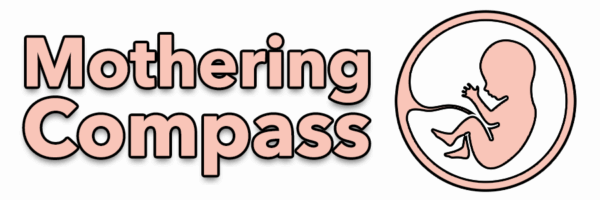Global Development Delay: Understanding, Supporting, and Empowering Your Child
For parents, noticing that a child is not hitting milestones “on time” can raise deep concerns. When delays appear across multiple areas—speech, motor skills, social behavior—it may signal a broader condition known as Global Development Delay (GDD). This diagnosis can feel overwhelming at first, but understanding what it means and how to support your child can transform confusion into clarity and confidence.

This article will help parents understand GDD, explore its causes, recognize early signs, and discover how to take meaningful, empowering steps toward their child’s progress.
What Is Global Development Delay?
Global Development Delay is a clinical term used when a child under age 5 exhibits significant delays in two or more areas of development:
- Cognitive abilities
- Speech and language
- Gross and fine motor skills
- Social and emotional behavior
- Daily living skills
It differs from isolated delays (like just speech or just motor skills) in that multiple domains are affected simultaneously.
Children with GDD may walk later, speak fewer words, struggle with coordination, or have difficulty understanding and responding socially. Diagnosis requires comprehensive evaluation by pediatric specialists, typically after a pattern of delays is observed.
The postpartum meaning isn’t just medical—it’s emotional and practical too. Explore its full scope here.
Causes and Risk Factors
GDD is not always tied to a specific cause, but several risk factors may be involved:
- Genetic disorders (e.g., Down syndrome, Fragile X)
- Premature birth
- Complications during pregnancy or birth
- Exposure to infections in utero
- Brain injury or trauma
- Nutritional deficiencies
- Environmental deprivation or neglect
In many cases, no definitive cause is identified—making early intervention and a focus on potential more important than labeling.
Recognizing the Early Signs
While every child develops at their own pace, some signs may indicate GDD:
By 6 Months:
- Doesn’t roll over
- Limited eye contact or smiling
- Doesn’t respond to sounds
By 12 Months:
- No babbling or basic gestures
- Difficulty sitting or crawling
- Doesn’t recognize name
By 18 Months:
- Not walking independently
- No clear words
- Doesn’t imitate behaviors
By 24–36 Months:
- Delays in combining words
- Difficulty playing with peers
- Trouble with fine motor tasks like stacking or drawing
Parents are usually the first to notice delays. If concerns arise, trust your instincts—early assessment is key.
Diagnosis and Evaluation
Diagnosis of GDD typically involves:
- Developmental screening during pediatric visits
- Standardized developmental assessments (e.g., Bayley Scales)
- Medical imaging or genetic testing (if needed)
- Multidisciplinary input from pediatricians, neurologists, and therapists
A formal diagnosis can qualify your child for essential early services—speech therapy, occupational therapy, physical therapy, and developmental support.
Interested in how surrogate motherhood works in practice? Explore the challenges, rewards, and realities.
Early Intervention Makes a Difference
The brain’s plasticity is highest during the first five years of life. That means early support leads to better long-term outcomes.
Key services include:
- Speech and language therapy for communication and comprehension
- Occupational therapy for fine motor coordination and daily tasks
- Physical therapy for mobility, strength, and balance
- Behavioral therapy to support social-emotional regulation
- Specialized preschool programs that integrate therapeutic support
These services can often be accessed through local health units or school boards, especially after a diagnosis.
Supporting Your Child at Home
While professional help is crucial, home-based support is just as impactful. Here’s how parents can nurture development:
- Create a structured daily routine for security and predictability
- Use simple, consistent language to aid speech development
- Break down tasks into smaller steps and offer praise for each
- Incorporate play-based learning—music, sensory bins, sorting games
- Encourage social interaction with siblings, cousins, or playgroups
- Read together daily using expressive tone and gestures
Progress may be gradual, but consistency matters more than perfection.
Emotional Support for Parents
Parenting a child with GDD can be emotionally intense. It’s common to feel:
- Worried about the future
- Isolated from other parents
- Guilty or self-blaming
- Fatigued from managing appointments
You are not alone.
From latch issues to recovery needs, post partum nursing requires patience and support. Explore tips that can help.
To support yourself:
- Join local or online parent support groups
- Seek therapy or counseling when needed
- Celebrate small wins daily
- Ask family/friends for help—even 1 hour off matters
- Stay informed, but avoid information overload
Taking care of your mental health is essential. Your child benefits when you’re supported too.
Education and Long-Term Planning
Children with GDD may eventually:
- Catch up to peers
- Continue to show mild delays
- Receive a later diagnosis of a neurodevelopmental disorder (e.g., autism, intellectual disability)
Educational planning is vital. Work with school staff to create an Individualized Education Plan (IEP) tailored to your child’s needs.
Some children will need accommodations like:
- Extra time or repetition
- Visual schedules
- One-on-one support
- Assistive communication tools
The goal isn’t perfection—it’s progress and participation.
Common Misconceptions About GDD
Myth 1: “It means my child is unintelligent.”
Truth: GDD affects developmental pace, not potential. Many children thrive with the right support.
Myth 2: “They’ll grow out of it without help.”
Truth: Some children do improve naturally, but most benefit from targeted intervention.
Myth 3: “I must have done something wrong.”
Truth: GDD is not caused by parenting style. It’s a neurological or genetic variation—blame has no place here.
Language of Empowerment
Labels like “delay” can feel discouraging. Try reframing the journey:
- Instead of “behind,” say “developing at their own pace.”
- Instead of “normal,” say “neurotypical.”
- Focus on strengths, not deficits.
Celebrate the beauty of neurodiversity. Each child brings something irreplaceable to the world.
If you want to continue your personal parenting research, we recommend this excellent source by the Canadian Paediatric Society.
Final Thoughts
A diagnosis of Global Development Delay is not the end of a story—it’s the beginning of a new path. With timely intervention, informed parenting, and a supportive environment, children with GDD can learn, grow, and shine in their own time.
This journey calls for resilience, advocacy, and tenderness. But most of all, it calls for belief in your child’s potential.
You are not just navigating delays—you are building a foundation for a lifetime of love, progress, and possibility.
